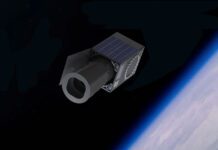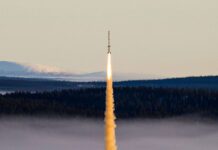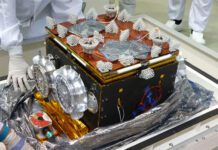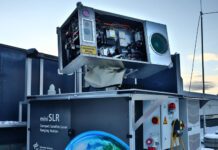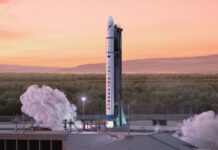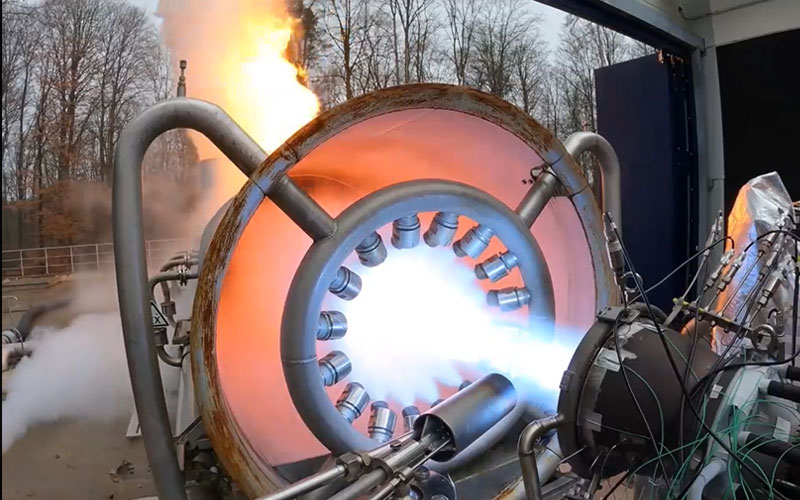
The German space agency DLR has successfully completed several test firings of its LUMEN upper stage rocket engine demonstrator. The engine will not be utilized aboard any future launch vehicle and will instead serve as a test bench. The expectation is that it will enable the acceleration of future space propulsion innovations.
DLR initiated the LUMEN engine project in 2017. The primary objective of the project was to create a modular and flexible test environment for future engine components in a fully representative system environment. However, DLR also used the project to increase the agency’s system expertise in the field of rocket engines. The engine is powered by liquid oxygen and methane and is designed to be capable of producing 25 kilonewtons of thrust.
LUMEN was test fired at the DLR Lampoldshausen facility in Germany on the P8.3 test bench. This test campaign was the first to combine both the engine’s turbopumps and thrust chamber. The testing began with a short initial hot fire test during which a combustion pressure of 50 bar was achieved. The engine was then fired for a total of 65 seconds during its second and third hot fire tests.
According to DLR, the success of the test campaign marks a significant milestone for the country as LUMEN is the first engine with a turbopump to be developed and tested in Germany in over 50 years. This statement is a little misleading, though. Both the Rocket Factory Augsburg Helix engine and the Isar Aerospace Aquila engine were developed in Germany and feature turbopumps. Neither have been tested in Germany, though. Both companies have been testing their respective engines in Sweden thus far.
With the successful completion of this most recent test campaign, LUMEN is now fully operational.

